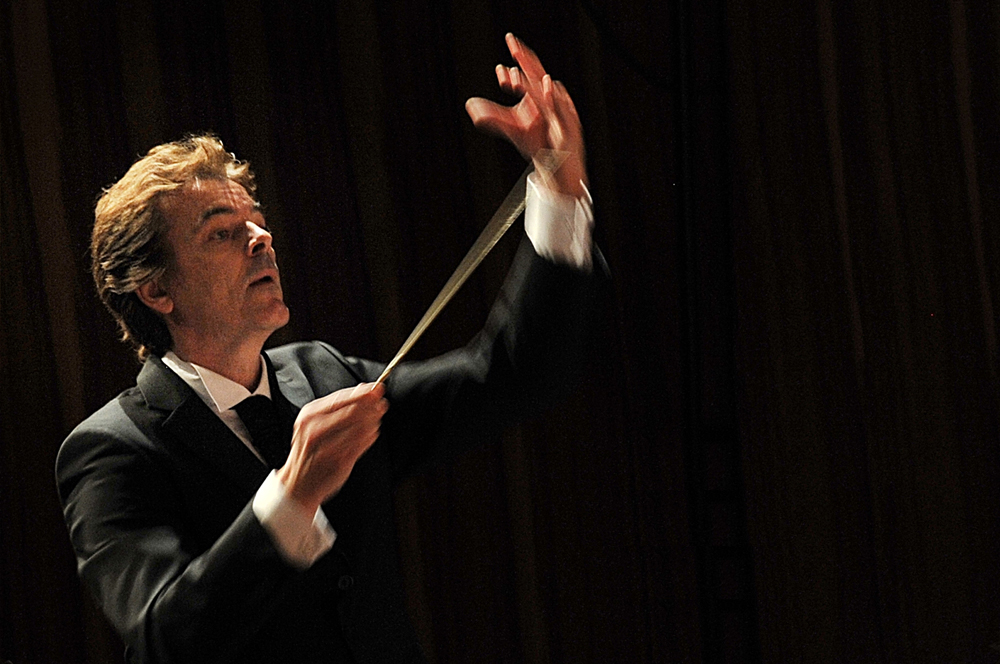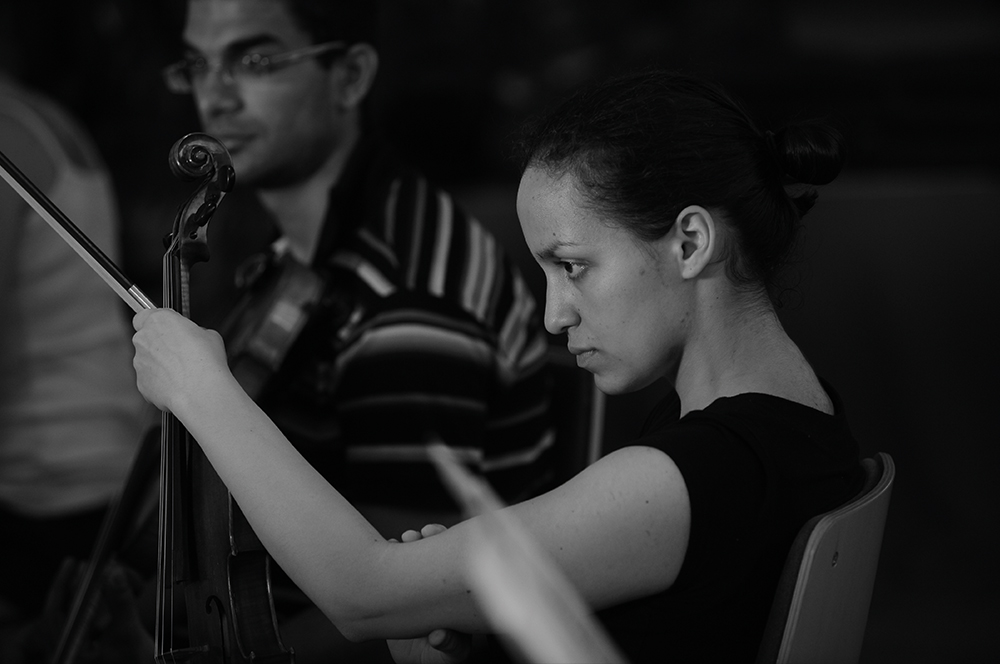To give those who embody Austria’s musical future a chance to become acquainted with life as orchestral players, there are a good number of youth orchestras‘ that give young musicians a taste of working in an orchestra over the long term. These proving grounds for future orchestral musicians include the Vienna Jeunesse Orchestra and the Gustav Mahler Youth Orchestra, to name just a couple. And the mdw recently brought to life its own Webern Kammerphilharmonie, a permanent university ensemble for future orchestral musicians looking to start their careers.

The Vienna Youth Philharmonic Orchestra, for its part, has been successfully offering such an experience since 1997 and has already served many mdw students as a springboard for their careers as professional orchestral players. Artistic Director Michael Lessky, one of this ensemble’s founders, sought from the very beginning to form an orchestra that would bridge the gap between training and a full-time professional orchestral post, he said in a conversation with mdw Magazine. Lessky himself studied law, church music, and jazz theory before, at age 23, he accepted an offer of his father, Friedrich Lessky, to conduct a mass. Having thus acquired a taste for conducting, he subsequently spent six years as an auditor in the conducting class of Karl Österreicher at the mdw. Through his father’s work at Vienna’s Musikgymnasium (a secondary school for musically talented young people) and also thanks to opportunities he had to observe the work of Claudio Abbado, Lessky was able to experience for many years just what young people look for following their professional training—which ultimately led to the idea of forming a youth orchestra for players from all over Austria.
From the very beginning, his Vienna Youth Philharmonic operated on the free market—because only by doing that, he says, does one learn how things will work later. The orchestra was quick to prove itself, and famous names like Agnes Baltsa and Ildiko Raimondi soon joined forces with the orchestra’s young talents to perform concerts and record CDs. “I don’t think much of pushing anyone into a specific role too early on, and I’m a firm believer in young people’s developmental potential,” says Lessky, who has nonetheless also advised musicians against choosing an orchestral career. “Not every individual is suited to the task. Alongside musical abilities, you need the right attitude, above all.”

Exchange with large teaching institutions, he says, is going well. Professors such as Barbara Gisler-Haase of the mdw (currently Vice Rector) repeatedly send their students to audition. And worldwide concert engagements speak to this orchestra’s quality: violinist Marko Radonic, born in 1983 and a former student of Michael Frischenschlager and Johannes Meissl at the mdw, spent over five years as concertmaster of the Vienna Youth Philharmonic before accepting a post with the Montenegrin Symphony Orchestra in Montenegro. Alina Pinchas, who has been playing first violin in the Vienna Philharmonic since 2013, served as concertmistress under Lessky for many years; she had received violin instruction at the mdw very early in life before going on to do a performance degree in Graz. And cellist Stephan Koncz, who began studying at the mdw when he was only eight years old, entered the Vienna Youth Philharmonic at age 14. He currently plays with the Berlin Philharmonic.
Percussionist Sebastian Efler has been studying at the mdw under Josef Gumpinger since 2011. He was active member of the orchestra until very recently, when he won the 2016 audition for solo timpanist with additional duties as a percussionist in the Hyogo Performing Arts Center Orchestra in Japan. And third horn in the Vienna Symphony is played by former member Markus Obmann, who successfully completed his horn studies at the mdw in 2009. So one can see that the step from studying at the mdw to playing in a professional orchestra, taken via a youth orchestra, has been successful for many a former student.
One of the most important things in orchestral life is continuity. “You can only learn how to play together if you have the opportunity to do so for several years,” says Lessky with conviction. And the ability to do this is what distinguishes his orchestra from so many other youth orchestras: the formation doesn’t change completely from year to year, and it plays around six programmes in up to twelve concerts annually. Programming covers a broad spectrum, ranging from symphonies to the accompaniment of vocal and instrumental soloists and on to opera and even jazz. Lessky’s outlook for the future of orchestras in general is thoroughly positive, provided that the political and economic conditions remain such that young people in the artistic field can be supported on a broad basis—thus ensuring the necessary musical diversity.

